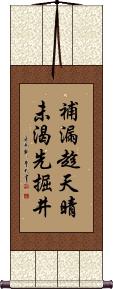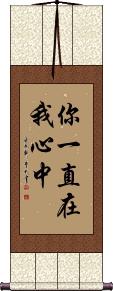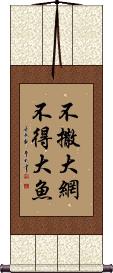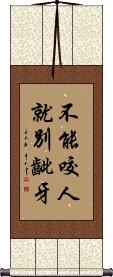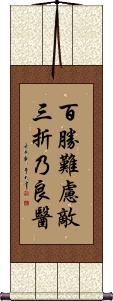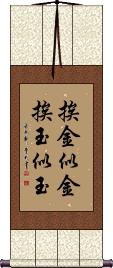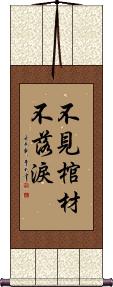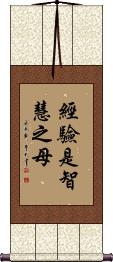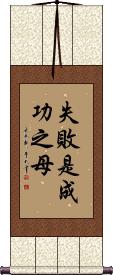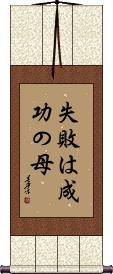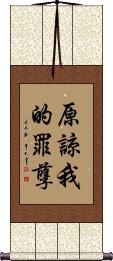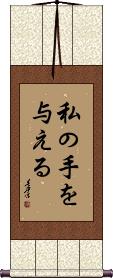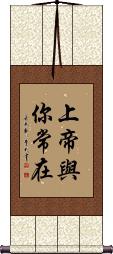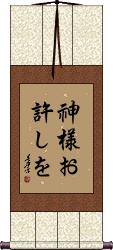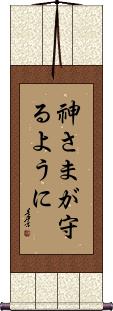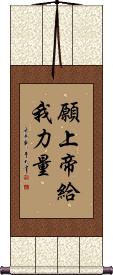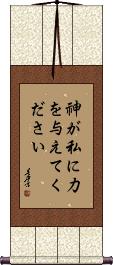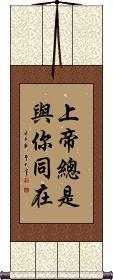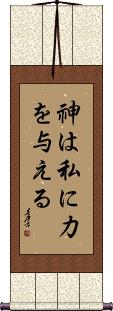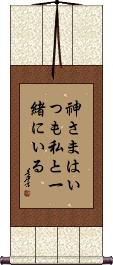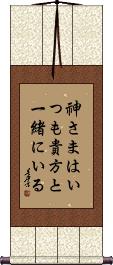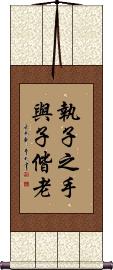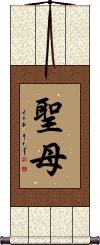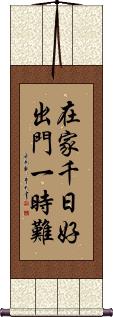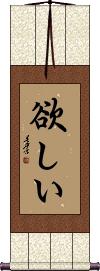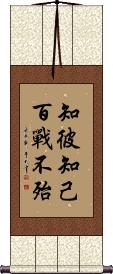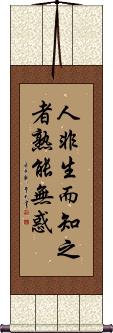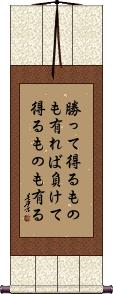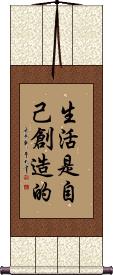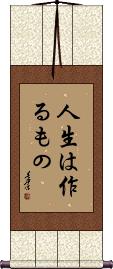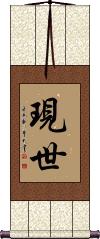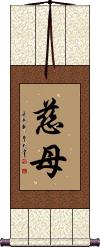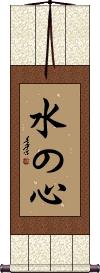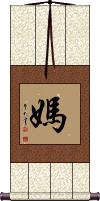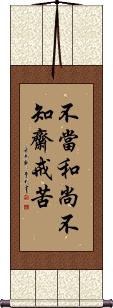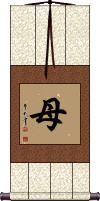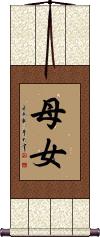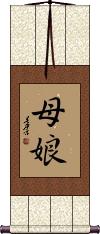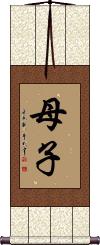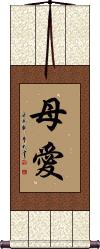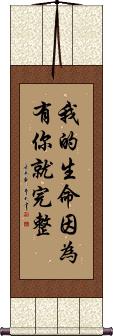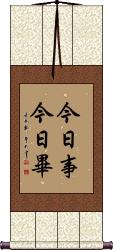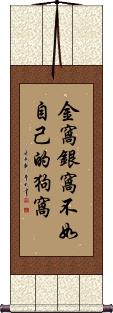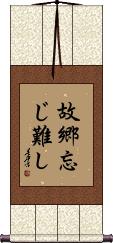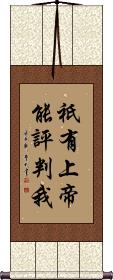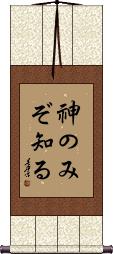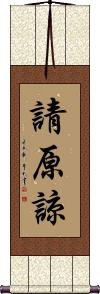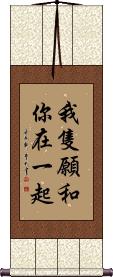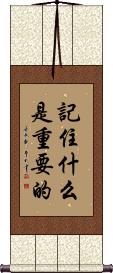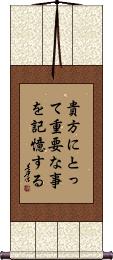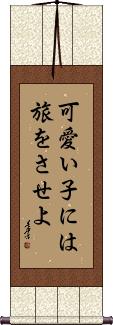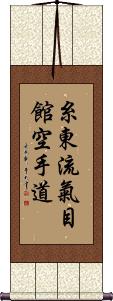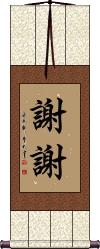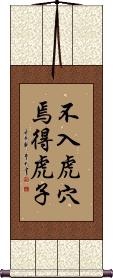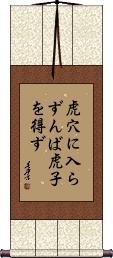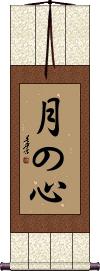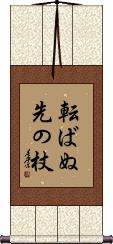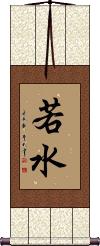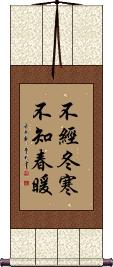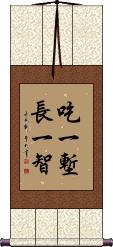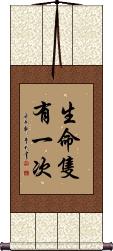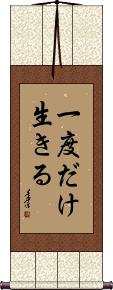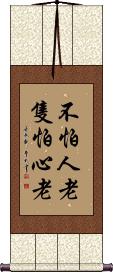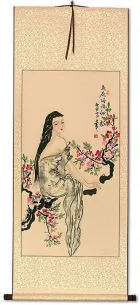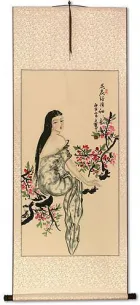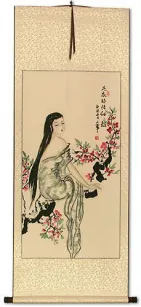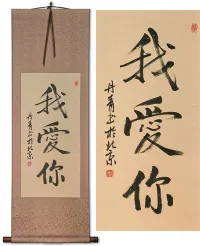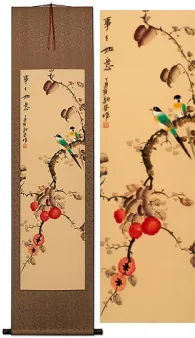Many custom options...
And formats...

Not what you want?
Try other similar-meaning words, fewer words, or just one word.
How You Like Me Now Mother Fuckers in Chinese / Japanese...
Buy a How You Like Me Now Mother Fuckers calligraphy wall scroll here!
Personalize your custom “How You Like Me Now Mother Fuckers” project by clicking the button next to your favorite “How You Like Me Now Mother Fuckers” title below...
Switched to secondary search mode due to lack of results using primary.
These secondary results may not be very accurate. Try a different but similar meaning word or phrase for better results. Or...
Look up How You Like Me Now Mother Fuckers in my Japanese Kanji & Chinese Character Dictionary(My dictionary is a different system then the calligraphy search you just tried)
If you want a special phrase, word, title, name, or proverb, feel free to contact me, and I will translate your custom calligraphy idea for you.
1. One Day Seems Like 1000 Years
2. Fix the roof before the rain; Dig the well before you are thirsty
5. You are always a beauty in your lover’s eyes
6. Without a big net, how can you catch fish?
7. If you cannot bite, do not show your teeth
8. You May Learn from Victory, You Will Learn from Failure
9. You are who you hang out with
10. Do not shed a tear until you see the coffin
11. Experience is the Mother of Wisdom
12. Failure is the Mother of Success
16. God Bless You
17. God Bless You / May God Protect You
18. God Forgive Me
19. God Loves You
20. God Bless You / God Be With You
26. Hold Hands with You, Grow Old with You
29. I Adore You
30. I Love You
32. I Miss You
33. I Need You
34. I Want You
35. Know Your Enemy, Know Yourself, and You Cannot Lose
36. We are not born with knowledge, how does one achieve maturity?
37. You May Learn from Victory, You Will Learn from Failure
39. Life is What You Make of It
41. Live In The Moment / Live In The Now
42. Loving Mother
43. Miss You Forever
44. Mind Like Water
46. If you have not been a monk, how can you know what it is like to be a vegetarian?
47. Mother
49. Mother and Son
50. Mother Nature
51. A Mother’s Love / Motherly Love
52. My life is complete because of you
53. Never put off until tomorrow what you can do today
54. There’s No Place Like Home
59. Remember What Is Important To You
60. If you love your child, send them out into the world
61. Shito-Ryu Ki-Me-Kan Karate-Do
64. A Journey of 1000 Miles Feels Like One
65. How can you catch tiger cubs without entering the lair of the tiger?
66. Tsuki no Kokoro / Mind like the Moon
67. Have a Walking Stick at the Ready Before You Stumble
68. Be Like Water
69. You must endure a harsh winter to appreciate the warmth of springtime
70. Each Time You Stumble and Fall, You Gain Experience and Wisdom
One Day Seems Like 1000 Years
一日千秋 is a Japanese and Chinese proverb about missing someone.
一日千秋 is often used to express how hard it is to wait for someone's return or to be away from someone.
Some will translate this as “one day feels like a very long time” or “waiting for someone (something) is hard.”
You might see this romanized as a single word, Ichijitsusenshuu, or as “Ichijitsu Senshuu” from Japanese.
If you break down the characters one-by-one, we get:
一 = one/a
日 = day/sun (can also represent time or date)
千 = 1000/thousand
秋 = autumn/fall
Together, 千秋 can mean “autumn comes thousand times” (or 1000 years). It can also be read as 1000 periods of time.
However, it relays the idea of heartache as you wait for someone you miss.
Fix the roof before the rain; Dig the well before you are thirsty
补漏趁天晴未渴先掘井 is a Chinese proverb that literally translates as: Mend the roof while the weather is fine, [and when you are] not yet thirsty, dig the well beforehand.
In simple terms, this means: Always being prepared in advance.
See Also: Have a Walking Stick at the Ready Before You Stumble
You are Always in My Heart
Be Like Water
像水一樣 is a short quote from a much longer statement by Bruce Lee.
He summarized how people should be flexible to all circumstances, attacks, or situations. In the end, he exclaims, “Be like water, my friend.” 像水一樣 is the “Be like water” part alone since that seems to be what most people want.
You are always a beauty in your lover’s eyes
Any woman with affection for Asian art will love a gift of this Chinese proverb calligraphy on a wall scroll.
She will melt in your arms as you tell her the meaning of these characters.
Contained in this phrase is a reference to the most beautiful woman in Chinese history. Her name was Xi Shi, and she was known to have good looks that need not have fine robes or makeup. Her charms were so powerful that she brought down an entire kingdom (in a successful effort to bring honor and pride back to her people).
情人眼里出西施 is a great way to express that the woman in your life is your one love.
Without a big net, how can you catch fish?
不撒大網不得大魚 is a Chinese proverb that literally translates as: [if one does] not cast a big net, [one can] not get big fish.
Figuratively, this means: One cannot make great accomplishments without making great efforts or taking great pains.
This is sort of the fishing version of, “No pain, no gain.”
If you cannot bite, do not show your teeth
If you cannot fight, don't start one
不能咬人就别龇牙 is a Chinese proverb that literally translates as: [if you] can't bite people, don't bare [your] teeth.
Figuratively, this means: Don't show your anger if you can't do anything about the situation.
Some will also say this means “Don't start a fight that you cannot win.” Others will say it means that you must be willing to back up your words (perhaps with your fists).
You May Learn from Victory, You Will Learn from Failure
百胜难虑敌三折乃良医 is a Chinese proverb that literally translates as: [Even a general who has won a] hundred victories [may be] hard put to see through the enemy's [strategy], [but one who has] broken [his] arm three [times] [will] be a good doctor.
Figuratively, this means: One cannot always depend on past successes to guarantee future success but one can always learn from lessons drawn from failure.
See Also: Failure - Mother of Success | Experience - Mother of Success | Fall Down 7 Times Get Up 8 | Hard Knocks
You are who you hang out with
金似金挨玉似玉 is a Chinese proverb that literally translates as: [One who is] close to gold [is] like gold [and one who is] close to jade [is] like jade.
Figuratively, this means:
A good environment produces good people.
People are influenced by the company they keep.
Basically, if you hang out with good people, you are likely to become or stay good yourself. The opposite also is true. 挨This is like the moral version of “You are what you eat.”
Note: In Japanese, they have a similar phrase, 類は友を呼ぶ (rui wa tomo o yobu) Birds of a feather flock together. However, this is not a good meaning, so we’re not offering it for wall scrolls.
Do not shed a tear until you see the coffin
不見棺材不落淚 is a cautionary tale that suggests you are unknowingly (though it should be obvious)on a bad course.
It further suggests that you will not realize your folly until the worst has happened.
This can also be a warning of inaction until it's too late to take action. Again, not realizing your error until it's too late.
In an alternate interpretation, some will suggest this means doing something bad and not looking back - Then the worst happens.
It should be noted that this is one of the oddest selections for a wall scroll in our whole Asian calligraphy database. All of our translators are convinced that no Chinese person would ever hang this on their wall.
Experience is the Mother of Wisdom
It's been said that wisdom comes from good judgment, and good judgment comes from experience, while experience comes from a series of times when you used bad judgment.
經驗是智慧之母 is a Chinese proverb that makes the simplest connection between experience and wisdom.
See Also: Failure is the Mother of Success | Wisdom | Learn From Wisdom
Failure is the Mother of Success
失败是成功之母 is a Chinese and Korean proverb that means “Every failure that you experience is a chance to learn from it and find success.”
Knowing what does not work is just as important as finding out what does work.
See Also: Experience is the Mother of Wisdom
Failure is the Mother of Success
失敗は成功の母 is a Japanese proverb that means exactly what you think.
Every failure that you experience is a chance to learn from it and find success.
Knowing what does not work is just as important as finding out what does work.
Note: This is the Japanese version of an ancient Chinese proverb.
Note: Because this selection contains some special Japanese Hiragana characters, it should be written by a Japanese calligrapher.
See Also: Experience is the Mother of Wisdom
Forgive Me of My Sins
原諒我的罪孽 is a religious phrase, which means exactly what the title suggests.
See Also: Christian
I give you my hand
God is Always With You
God is With Me Always
The direct translation of the Chinese characters, 上帝与你常在, is “God Together [with] You Always Exist.”
Keep in mind that Chinese grammar is sometimes very different from English. This makes perfect sense in Chinese.
Note: The title for God is the first two characters - the other words in the direct translation represent one character each.
God Bless You
God Bless You / May God Protect You
上帝保佑 is a blessing exchanged between Chinese Christians.
The first two characters mean God (The God of Zion). The second two characters express the idea of giving protection. Another way to translate this is “May God protect you.”
See Also: Guardian Angel
God Forgive Me
God Loves You
God Bless You / God Be With You
神さまが守るように is about as close as you can get to, “God Bless You” in Japanese.
This literally means “[May] God Protect [You].” It can also mean “God is Always With You,” as the word in this phrase that means “protect” can also mean to follow or be with. In fact, the Japanese dictionary entry for that word reads like this: to protect; to guard; to defend; to keep (i.e. a promise); to abide; to observe; to follow.
Note: Because this selection contains some special Japanese Hiragana characters, it should be written by a Japanese calligrapher.
God Give Me Strength
God Give Me Strength
God Is With You Always
I was going to write this phrase as “God is with me always” but as a wall scroll, hanging in your room, it is talking to you (you're not talking), so it works better with you.
上帝總是與你同在 is a nice phrase that any Chinese Christian would enjoy on his/her wall.
If I annotate this, it sounds a little strange in English but it's perfectly natural in Chinese:
上帝 God | 总是 always | 与 and | 你 you | 同 together | 在 existing
God Give Me Strength
God is Always With Me
God is Always With You
Hold Hands with You, Grow Old with You
Holy Mother / Saint Mary
聖母 is the title for the Holy Mother, Madonna, or Virgin Mary used by Catholic Chinese, Korean, and Japanese people.
I think this would be a very cool wall scroll for a devout Catholic who also appreciates Asian artwork and language.
Note: Koreans often put a third character after these two, which creates a title that means “Hail Mary”; however, this character is not added or used in the same way in Japanese or Chinese. If you want that Korean title, just let me know, and we'll add that character for you. The two-character title shown to the left is universal, so I think it's the best choice.
No Place Like Home
在家千日好出门一时难 is a Chinese proverb that literally means “At home, one can spend a thousand days in comfort but spending a day away from home can be challenging.”
Figuratively, this means “There's no place like home,” or roughly a Chinese version of “Home sweet home.”
I Adore You
I Love You
I Love You / Aishiteru
It's very uncommon (some will say taboo) to say “I love you” in Japanese culture. It's especially awkward for a man to tell a woman this in Japanese. Everyone is more likely to say “Watashi wa anata ga suki desu” or “I like you” (literally, “I regarding you, have like.”
If you have to say “I love you” in Japanese, 愛してる is a selection of Kanji and Hiragana that provide a way.
Note: Because this selection contains some special Japanese Hiragana characters, it should be written by a Japanese calligrapher.
I Miss You
I Need You
I Need You
Some people like to say, “I love you” but others might want to say “I need you.” 貴方が必要 is “I need you” in Japanese.
The first two characters mean “You.”
The middle character is a connecting particle. In this case, it more or less means “are.”
The last two characters mean necessary, needed, essential, indispensable, or necessity.
The “I” in the title is implied. Effectively this means “I need you.”
I Want You
Some people like to say, “I love you,” but if you want to say “I want you,” here it is in Japanese... 欲しい
This can be read as “I want you” or as a single word, “wanted,” “wished for,” “in need of,” or “desired.”
Note: Because this selection contains some special Japanese Hiragana characters, it should be written by a Japanese calligrapher.
Know Your Enemy, Know Yourself, and You Cannot Lose
知彼知己百戰不殆 is from Sun Tzu's (Sunzi's) Art of War. It means that if you know and understand the enemy, you also know yourself, and thus with this complete understanding, you cannot lose.
This proverb is often somewhat directly translated as “Know the enemy and know yourself, and you can fight a hundred battles without defeat.”
It can also be translated as “If you know both yourself and your enemy, you can come out of hundreds of battles without danger,” or “Know your enemy, know yourself, and your victory will not be threatened.”
We are not born with knowledge, how does one achieve maturity?
This figuratively means “Without a teacher, how can we learn/mature?”
人非生而知之者熟能無惑 is a philosophic pondering by Han Yu, a Tang Dynasty essayist, and philosopher (618-907 A.D.). This is a Chinese proverb that can be translated as “Knowledge is not innate to man, how can we overcome doubt?” or, “We are not born with knowledge, how does one achieve maturity?.”
This infers that we need the guidance of a teacher if we wish to learn, mature, and become better.
You May Learn from Victory, You Will Learn from Failure
You may learn when everything goes right but the lessons learned when everything goes wrong are more vivid and lead to long-lasting wisdom.
Another way to look at this: One cannot always depend on past successes to guarantee future success but one can always learn from lessons drawn from failure.
Note: Because this selection contains some special Japanese Hiragana characters, it should be written by a Japanese calligrapher.
Life is What You Make It
Life is What You Make of It
Live for What You Love
人生謳歌 means “live for what you love” in Japanese.
The first two characters mean “human life” or simply “living.” The last two characters mean “merit,” “prosperity,” or “what you enjoy.” This phrase can suggest working or staying busy for your own goals (in your career).
See Also: Prosperity
Live In The Moment / Live In The Now
現世 is a very short way to write “live in the moment” or “live in the now” in Japanese.
This short word is open to interpretation. It's used in Japanese Buddhism to mean “the current epoch” or “the current age” (the current age is but a brief moment in the greater scope of existence). In that context, this is pronounced “utsushiyo” or “ustusiyo” in Japanese. Otherwise, it's pronounced “gensei” in Japanese.
Other translation possibilities include:
Earthly world
This world
This life
Present life
Present generation
Present incarnation
This existence
This (momentary) reality
Note: This is also a word in Chinese and old Korean Hanja. While the meaning is more or less the same, this is not recommended for a wall scroll if your audience is Chinese or Korean. This selection is best if your audience is Japanese.
Loving Mother
Miss You Forever
永遠想念你 is how to write “missing you forever” in Chinese.
The first two characters mean “forever” or “eternally.”
The third and fourth characters mean “missing” or “longing for.”
The last character means “you.”
This might suggest that you are missing someone whom you will never see again (depending on how you read it, or in what context it is used).
Mind Like Water
Mizu No Kokoro
水の心 is the Japanese Buddhist and martial arts phrase, “Mizu no Kokoro,” which means “mind like water” or “heart of water.”
The phrase is a metaphor describing the pond that clearly reflects its surroundings when calm but whose images are obscured once a pebble is dropped into its waters.
Mama / Mother / Mommy
媽 is the oral way that most Chinese people refer to their mothers. Often, they will put this together twice (two of the same character in a row) to create a word that sounds like “Mama.” That's absolutely what little kids call their mothers in China. This Chinese “Mama” is the rough equivalent of “Mommy” in English. Beyond a certain age, Chinese will start to just say “Ma,” which is like saying “Mom.”
This entry is just here for a language lesson. This would make a strange wall scroll by Chinese standards. In Chinese, there are sometimes oral words that don't seem appropriate when written in calligraphy, and this is one of them. See our entry for “Loving Mother” for a better selection.
See Also: Loving Mother | Family
If you have not been a monk, how can you know what it is like to be a vegetarian?
Only by experiencing hardship will allow you understand the plight of others
不當和尚不知齋戒苦 literally translates as:
[One who has] not been a monk [does not] know the suffering of [being on a] vegetarian diet.
This is a bit like the “walk a mile in another man's shoes” saying. Basically, it's about you cannot fully understand the plight of others until you experience it yourself.
Mother
母 is a way to say mother in Chinese, Japanese Kanji, and old Korean Hanja.
This can also be an honorary title for an elderly female relative.
Sometimes this can refer to the origin or source of something. Examples: A spring might be the mother of a river, or experience could be the mother of success.
Mother and Daughter
母女 means “mother and daughter” as a unit or as if mother and daughter are a whole together.
母女 is an unusual selection for a calligraphy wall scroll and can be read in many different ways. Your native Asian friends might wonder what you are trying to say. They might even read it as “a mother and daughter without a dad.”
This entry was added to our database for a customer's special request. It has the same meaning in Chinese Characters and Korean Hanja.
See Also: Mother and Son
Mother and Daughter
母娘 means “mother and daughter” in Japanese Kanji.
母娘 is an unusual selection for a calligraphy wall scroll and can be read in many different ways. Your native Japanese friends might wonder what you are trying to say.
Note: This will not make sense in Chinese.
See Also: Mother and Son
Mother and Son
母子 simply means “mother and son,” or the essence of the relationship and bond between mother and son.
母子 is really a single word that expresses this idea (showing how important or significant this bond is).
This is not the most common choice for a wall scroll, it is acceptable if you feel this term is important to you.
See Also: Mother and Daughter
Mother Nature
大自然 is the simple way to express “mother nature” in Chinese, Japanese Kanji, and old Korean Hanja.
This can also be translated as “the great nature” or “all of nature.”
A Mother’s Love / Motherly Love
My life is complete because of you
Never put off until tomorrow what you can do today
There’s No Place Like Home
金窝银窝不如自己的狗窝 is a Chinese slang proverb that means “Golden house, [or a] silver house, not as good as my own dog house.”
It's basically saying that even a house made of gold or silver is not as good as my own home (which may only be suitable for a dog but at least it's mine).
No Place Like Home
Only God Can Judge Me
Only God Can Judge Me
Please Forgive Me
Please Forgive Me
I’d Rather Be With You
Remember What Is Important To You
Remember What Is Important To You
If you love your child, send them out into the world
可愛い子には旅をさせよ is a Japanese proverb that means “If you love your children, send them out on a journey into the world.”
This is kind of similar to the western phrase, “Spare the rod and spoil the child.”
More literally, this reads, “Cute child, a journey granted.”
That “granted” could also be understood as “should be initiated.”
Note: Because this selection contains some special Japanese Hiragana characters, it should be written by a Japanese calligrapher.
Shito-Ryu Ki-Me-Kan Karate-Do
Thank You / Xie Xie
謝謝 is how to say thank you in Chinese. It is pronounced a bit like “shea shea” as in the English word for shea butter. Except you pronounce the X like “sh” but with your tongue firmly at the bottom of your mouth.
Unless you are putting this wall scroll near the exit of your store or restaurant to thank customers for coming, it is a bit of an odd selection. A gift of thanks to another person should be a more personal selection with more meaning than a simple thank you. Although common to write xie xie inside a card or letter of thanks.
Technically, this can be pronounced in Japanese but in Japan, it’s still the Chinese way to say thank you. It’s like an English speaker saying "gracias" (Spanish word for thank you).
Thank You / Arigato
A Journey of 1000 Miles Feels Like One
千里も一里 is a Japanese proverb that states “A journey of a thousand miles feels like only one mile.” It is understood that in the proverb, this applies when going to see the one you love.
Note that the “mile” or 里 used in this proverb is an old Chinese “li” (pronounced “ri” in Japanese). It's not actually a mile, as the measurement is really closer to 500 meters (it would take 3 of these to get close to a western mile). Still, 1000里 (333 miles) is a long way.
How can you catch tiger cubs without entering the lair of the tiger?
Nothing ventured, nothing gained
While perhaps no longer politically correct, this Chinese proverb is a reminder that you must take risks if you want rewards.
不入虎穴焉得虎子 is similar to the English proverb, “Nothing ventured, nothing gained.”
The literal word order of the Chinese is, “If (you) don't enter the tiger's lair/cave, how can (you) get/obtain tiger cubs?.”
How can you catch tiger cubs without entering the lair of the tiger?
Nothing ventured, nothing gained
虎穴に入らずんば虎子を得ず is the Japanese version of an ancient Chinese proverb. 虎穴に入らずんば虎子を得ず is a reminder that you must take risks if you want the reward.
虎穴に入らずんば虎子を得ず is similar to the English proverb, “Nothing ventured, nothing gained.”
Note: Because this selection contains some special Japanese Hiragana characters, it should be written by a Japanese calligrapher.
Tsuki no Kokoro / Mind like the Moon
Have a Walking Stick at the Ready Before You Stumble
転ばぬ先の杖 is a Japanese proverb that literally translates as: Have a walking stick ready before stumbling.
This is similar to the English idiom, “A stitch in time saves nine.”
In simple terms, this means: Always being prepared in advance.
Note: Because this selection contains some special Japanese Hiragana characters, it should be written by a Japanese calligrapher.
See Also: Fix Roof Before the Rain; Dig the Well Before You Are Thirsty
Be Like Water
Quote from Lao Tzu
若水 is part of a very old saying from Lao Tzu.
In these two characters, there is a suggestion to be like water. The full phrase is about the goodness and purity of water. So, when this suggests being like water, it is actually a suggestion to be a good person (one who does not dishonor himself/herself, etc.).
You must endure a harsh winter to appreciate the warmth of springtime
You must know hardship to appreciate happiness
This literally translates as: Without having experienced the cold of winter, one cannot appreciate the warmth of spring.
Figuratively, this means: One cannot truly appreciate happiness without having gone through hardship.
There are many contrasts in life. One simply cannot fully know what joy is without having experienced misery, difficulty, and pain. How could you explain “light” if you did not have “darkness” to compare it to?
Embrace hardship, as it makes the good times seem even better.
Each Time You Stumble and Fall, You Gain Experience and Wisdom
吃一塹長一智 is a Chinese proverb that means “Fall into a moat, and you will gain wisdom from the experience.”
It really suggests that the failures, troubles, frustrations, and setbacks that you encounter in your life are actually helping you to find wisdom. Some would also translate this proverb as “Learn from your mistakes” or “Learn from your experience.”
If you are studying Chinese, you will recognize the first character as “eat,” but in this case, it means to “experience” (as used in this proverb, it is suggesting that you have fallen into a moat and/or had a hard time crossing it).
Translated character by character, this whole proverb is, “Experience one moat, gain one wisdom/knowledge.”
Note: This can be pronounced in Korean, but it's not a commonly used phrase.
You Only Live Once
You Only Live Once
一度だけ生きる is the simplest Japanese phrase that means “[you] only live once” or “only one [life] to live.”
The first four characters create a word that means “only once.”
The last three characters create a word that means “to live” or “to exist.”
Note: Because this selection contains some special Japanese Hiragana characters, it should be written by a Japanese calligrapher.
You are only as old as you feel
You're only old if you think you're old
This in-stock artwork might be what you are looking for, and ships right away...
Gallery Price: $60.00
Your Price: $36.88
Gallery Price: $60.00
Your Price: $36.88
Gallery Price: $200.00
Your Price: $88.88
Gallery Price: $200.00
Your Price: $88.88
Gallery Price: $200.00
Your Price: $88.88
Gallery Price: $60.00
Your Price: $36.88
Gallery Price: $61.00
Your Price: $33.88
Gallery Price: $61.00
Your Price: $33.88
Gallery Price: $108.00
Your Price: $59.88
The following table may be helpful for those studying Chinese or Japanese...
| Title | Characters | Romaji (Romanized Japanese) | Various forms of Romanized Chinese | |
| One Day Seems Like 1000 Years | 一日千秋 | ichi jitsu sen shuu ichijitsusenshuu ichi jitsu sen shu | yí rì qiān qiū yi2 ri4 qian1 qiu1 yi ri qian qiu yiriqianqiu | i jih ch`ien ch`iu ijihchienchiu i jih chien chiu |
| Fix the roof before the rain; Dig the well before you are thirsty | 補漏趁天晴未渴先掘井 补漏趁天晴未渴先掘井 | bǔ lòu chèn tiān qíng wèi kě xiān jué jǐng bu3 lou4 chen4 tian1 qing2 wei4 ke3 xian1 jue2 jing3 bu lou chen tian qing wei ke xian jue jing | pu lou ch`en t`ien ch`ing wei k`o hsien chüeh ching pu lou chen tien ching wei ko hsien chüeh ching |
|
| You are Always in My Heart | 你一直在我心中 | nǐ yī zhí zài wǒ xīn zhōng ni3 yi1 zhi2 zai4 wo3 xin1 zhong1 ni yi zhi zai wo xin zhong niyizhizaiwoxinzhong | ni i chih tsai wo hsin chung niichihtsaiwohsinchung |
|
| Be Like Water | 像水一樣 | xiàng shuǐ yí yàng xiang4 shui3 yi2 yang4 xiang shui yi yang xiangshuiyiyang | hsiang shui i yang hsiangshuiiyang |
|
| You are always a beauty in your lover’s eyes | 情人眼里出西施 | qíng rén yǎn lǐ chū xī shī qing2 ren2 yan3 li3 chu1 xi1 shi1 qing ren yan li chu xi shi qingrenyanlichuxishi | ch`ing jen yen li ch`u hsi shih chingjenyenlichuhsishih ching jen yen li chu hsi shih |
|
| Without a big net, how can you catch fish? | 不撒大網不得大魚 不撒大网不得大鱼 | bù sā dà wǎng bù dé dà yú bu4 sa1 da4 wang3 bu4 de2 da4 yu2 bu sa da wang bu de da yu busadawangbudedayu | pu sa ta wang pu te ta yü pusatawangputetayü |
|
| If you cannot bite, do not show your teeth | 不能咬人就別齜牙 不能咬人就别龇牙 | bù néng yǎo rén jiù bié zī yá bu4 neng2 yao3 ren2 jiu4 bie2 zi1 ya2 bu neng yao ren jiu bie zi ya bunengyaorenjiubieziya | pu neng yao jen chiu pieh tzu ya | |
| You May Learn from Victory, You Will Learn from Failure | 百勝難慮敵三折乃良醫 百胜难虑敌三折乃良医 | bǎi shèng nán lǜ dí sān zhé nǎi liáng yī bai3 sheng4 nan2 lv4 di2 san1 zhe2 nai3 liang2 yi1 bai sheng nan lv di san zhe nai liang yi | pai sheng nan lü ti san che nai liang i | |
| You are who you hang out with | 挨金似金挨玉似玉 | āi jīn sì jīn āi yù sì yù ai1 jin1 si4 jin1 ai1 yu4 si4 yu4 ai jin si jin ai yu si yu aijinsijinaiyusiyu | ai chin ssu chin ai yü ssu yü aichinssuchinaiyüssuyü |
|
| Do not shed a tear until you see the coffin | 不見棺材不落淚 不见棺材不落泪 | bú jiàn guān cái bú luò lèi bu2 jian4 guan1 cai2 bu2 luo4 lei4 bu jian guan cai bu luo lei bujianguancaibuluolei | pu chien kuan ts`ai pu lo lei puchienkuantsaipulolei pu chien kuan tsai pu lo lei |
|
| Experience is the Mother of Wisdom | 經驗是智慧之母 经验是智慧之母 | jīng yàn shì zhì huì zhī mǔ jing1 yan4 shi4 zhi4 hui4 zhi1 mu3 jing yan shi zhi hui zhi mu jingyanshizhihuizhimu | ching yen shih chih hui chih mu | |
| Failure is the Mother of Success | 失敗是成功之母 失败是成功之母 | shī bài shì chéng gōng zhī mǔ shi1 bai4 shi4 cheng2 gong1 zhi1 mu3 shi bai shi cheng gong zhi mu shibaishichenggongzhimu | shih pai shih ch`eng kung chih mu shih pai shih cheng kung chih mu |
|
| Failure is the Mother of Success | 失敗は成功の母 | shippai wa seikou no haha shippaiwaseikounohaha shipai wa seiko no haha | ||
| Forgive Me of My Sins | 原諒我的罪孽 原谅我的罪孽 | yuán liàng wǒ de zuì niè yuan2 liang4 wo3 de zui4 nie4 yuan liang wo de zui nie yuanliangwodezuinie | yüan liang wo te tsui nieh yüanliangwotetsuinieh |
|
| I give you my hand | 私の手を與える 私の手を与える | watashi no te o ataeru watashinoteoataeru | ||
| God is Always With You | 上帝與你常在 上帝与你常在 | shàng dì yǔ nǐ cháng zài shang4 di4 yu3 ni3 chang2 zai4 shang di yu ni chang zai shangdiyunichangzai | shang ti yü ni ch`ang tsai shangtiyünichangtsai shang ti yü ni chang tsai |
|
| God Bless You | お大事に | odaijini | ||
| God Bless You May God Protect You | 上帝保佑 | shàng dì bǎo yòu shang4 di4 bao3 you4 shang di bao you shangdibaoyou | shang ti pao yu shangtipaoyu |
|
| God Forgive Me | 神様お許しを | kami sama o yuru shi wo kamisamaoyurushiwo | ||
| God Loves You | 上帝愛你 上帝爱你 | shàng dì ài nǐ shang4 di4 ai4 ni3 shang di ai ni shangdiaini | shang ti ai ni shangtiaini |
|
| God Bless You God Be With You | 神さまが守るように | kami sa ma ga mamo ru you ni kamisamagamamoruyouni kami sa ma ga mamo ru yo ni | ||
| God Give Me Strength | 願上帝給我力量 愿上帝给我力量 | yuàn shàng dì gěi wǒ lì liàng yuan4 shang4 di4 gei3 wo3 li4 liang4 yuan shang di gei wo li liang yuanshangdigeiwoliliang | yüan shang ti kei wo li liang yüanshangtikeiwoliliang |
|
| God Give Me Strength | 神が私に力を與えてください 神が私に力を与えてください | kami ga watashi ni chikara o atae te kudasai | ||
| God Is With You Always | 上帝總是與你同在 上帝总是与你同在 | shàn dì zǒng shì yǔ nǐ tóng zài shan4 di4 zong3 shi4 yu3 ni3 tong2 zai4 shan di zong shi yu ni tong zai shandizongshiyunitongzai | shan ti tsung shih yü ni t`ung tsai shan ti tsung shih yü ni tung tsai |
|
| God Give Me Strength | 神は私に力を與える 神は私に力を与える | kami wa watashi ni chikara o ataeru | ||
| God is Always With Me | 神さまはいつも私と一緒にいる | kamisama wa itsumo watashi to issho ni iru kamisama wa itsumo watashi to isho ni iru | ||
| God is Always With You | 神さまはいつも貴方と一緒にいる | kamisama wa itsumo watashi to anata to issho ni iru kamisama wa itsumo watashi to anata to isho ni iru | ||
| Hold Hands with You, Grow Old with You | 執子之手與子偕老 执子之手与子偕老 | zhí zǐ zhī shǒu yǔ zǐ xié lǎo zhi2 zi3 zhi1 shou3 yu3 zi3 xie2 lao3 zhi zi zhi shou yu zi xie lao zhizizhishouyuzixielao | chih tzu chih shou yü tzu hsieh lao | |
| Holy Mother Saint Mary | 聖母 圣母 | seibo | shèng mǔ / sheng4 mu3 / sheng mu / shengmu | |
| No Place Like Home | 在家千日好出門一時難 在家千日好出门一时难 | zài jiā qiān rì hǎo chū mén yì shí nán zai4 jia1 qian1 ri4 hao3 chu1 men2 yi4 shi2 nan2 zai jia qian ri hao chu men yi shi nan | tsai chia ch`ien jih hao ch`u men i shih nan tsai chia chien jih hao chu men i shih nan |
|
| I Adore You | 我崇拜你 | wǒ chóng bài nǐ wo3 chong2 bai4 ni3 wo chong bai ni wochongbaini | wo ch`ung pai ni wochungpaini wo chung pai ni |
|
| I Love You | 我愛你 我爱你 | wǒ ài nǐ wo3 ai4 ni3 wo ai ni woaini | ||
| I Love You Aishiteru | 愛してる | ai shi te ru aishiteru | ||
| I Miss You | 我想你 | wǒ xiǎng nǐ wo3 xiang3 ni3 wo xiang ni woxiangni | wo hsiang ni wohsiangni |
|
| I Need You | 我需要你 | wǒ xū yào nǐ wo3 xu1 yao4 ni3 wo xu yao ni woxuyaoni | wo hsü yao ni wohsüyaoni |
|
| I Need You | 貴方が必要 | ana ta ga hitsu you anatagahitsuyou ana ta ga hitsu yo | ||
| I Want You | 欲しい | hoshii / hoshi | ||
| Know Your Enemy, Know Yourself, and You Cannot Lose | 知彼知己百戰不殆 知彼知己百战不殆 | zhí bǐ zhí jī bǎi zhàn bú dài zhi2 bi3 zhi2 ji1 bai3 zhan4 bu2 dai4 zhi bi zhi ji bai zhan bu dai zhibizhijibaizhanbudai | chih pi chih chi pai chan pu tai | |
| We are not born with knowledge, how does one achieve maturity? | 人非生而知之者熟能無惑 | rén fēi shēng ér zhī zhī zhě shú néng wú huò ren2 fei1 sheng1 er2 zhi1 zhi1 zhe3 shu2 neng2 wu2 huo4 ren fei sheng er zhi zhi zhe shu neng wu huo | jen fei sheng erh chih chih che shu neng wu huo | |
| You May Learn from Victory, You Will Learn from Failure | 勝って得るものも有れば負けて得るものも有る | katte erumono mo areba makete erumono mo aru | ||
| Life is What You Make It | 生活是自己創造的 生活是自己创造的 | shēng huó shì zì jǐ chuàng zào de sheng1 huo2 shi4 zi4 ji3 chuang4 zao4 de sheng huo shi zi ji chuang zao de | sheng huo shih tzu chi ch`uang tsao te sheng huo shih tzu chi chuang tsao te |
|
| Life is What You Make of It | 人生は作るもの | jinsei wa tsukuru mono jinseiwatsukurumono | ||
| Live for What You Love | 人生謳歌 | jin sei ou ka jinseiouka jin sei o ka | ||
| Live In The Moment Live In The Now | 現世 现世 | gen sei / gensei | xiàn shì / xian4 shi4 / xian shi / xianshi | hsien shih / hsienshih |
| Loving Mother | 慈母 | ji bo / jibo | cí mǔ / ci2 mu3 / ci mu / cimu | tz`u mu / tzumu / tzu mu |
| Miss You Forever | 永遠想念你 永远想念你 | yǒng yuǎn xiǎng niàn nǐ yong3 yuan3 xiang3 nian4 ni3 yong yuan xiang nian ni yongyuanxiangnianni | yung yüan hsiang nien ni yungyüanhsiangnienni |
|
| Mind Like Water | 水の心 | mizu no kokoro mizunokokoro | ||
| Mama Mother Mommy | 媽 妈 | mā / ma1 / ma | ||
| If you have not been a monk, how can you know what it is like to be a vegetarian? | 不當和尚不知齋戒苦 不当和尚不知斋戒苦 | bù dāng hé shang bù zhī zhāi jiè kǔ bu4 dang1 he2 shang bu4 zhi1 zhai1 jie4 ku3 bu dang he shang bu zhi zhai jie ku | pu tang ho shang pu chih chai chieh k`u pu tang ho shang pu chih chai chieh ku |
|
| Mother | 母 | haha | mǔ / mu3 / mu | |
| Mother and Daughter | 母女 | mǔ nǚ / mu3 nv3 / mu nv / munv | mu nü / munü | |
| Mother and Daughter | 母娘 | haha musume hahamusume | ||
| Mother and Son | 母子 | bo shi / boshi | mǔ zǐ / mu3 zi3 / mu zi / muzi | mu tzu / mutzu |
| Mother Nature | 大自然 | dai shi zen daishizen | dà zì rán da4 zi4 ran2 da zi ran daziran | ta tzu jan tatzujan |
| A Mother’s Love Motherly Love | 母愛 母爱 | mǔ ài / mu3 ai4 / mu ai / muai | ||
| My life is complete because of you | 我的生命因為有你就完整 我的生命因为有你就完整 | wǒ de shēng mìng yīn wèi yǒu nǐ jiù wán zhěng wo3 de sheng1 ming4 yin1 wei4 you3 ni3 jiu4 wan2 zheng3 wo de sheng ming yin wei you ni jiu wan zheng | wo te sheng ming yin wei yu ni chiu wan cheng | |
| Never put off until tomorrow what you can do today | 今日事今日畢 今日事今日毕 | jīn rì shì jīn rì bì jin1 ri4 shi4 jin1 ri4 bi4 jin ri shi jin ri bi jinrishijinribi | chin jih shih chin jih pi chinjihshihchinjihpi |
|
| There’s No Place Like Home | 金窩銀窩不如自己的狗窩 金窝银窝不如自己的狗窝 | jīn wō yín wō bù rú zì jǐ de gǒu wō jin1 wo1 yin2 wo1 bu4 ru2 zi4 ji3 de5 gou3 wo1 jin wo yin wo bu ru zi ji de gou wo | chin wo yin wo pu ju tzu chi te kou wo | |
| No Place Like Home | 故郷忘じ難し | kokyouboujigatashi kokyobojigatashi | ||
| Only God Can Judge Me | 衹有上帝能評判我 只有上帝能评判我 | zhǐ yǒu shàng dì néng píng pàn wǒ zhi3 you3 shang4 di4 neng2 ping2 pan4 wo3 zhi you shang di neng ping pan wo | chih yu shang ti neng p`ing p`an wo chih yu shang ti neng ping pan wo |
|
| Only God Can Judge Me | 神のみぞ知る | kami nomi zo shiru kaminomizoshiru | ||
| Please Forgive Me | 請原諒 请原谅 | qíng yuán liàng qing2 yuan2 liang4 qing yuan liang qingyuanliang | ch`ing yüan liang chingyüanliang ching yüan liang |
|
| Please Forgive Me | お許しを | oyurushi wo oyurushiwo | ||
| I’d Rather Be With You | 我隻願和你在一起 我只愿和你在一起 | wǒ zhǐ yuàn hé nǐ zài yī qǐ wo3 zhi3 yuan4 he2 ni3 zai4 yi1 qi3 wo zhi yuan he ni zai yi qi wozhiyuanhenizaiyiqi | wo chih yüan ho ni tsai i ch`i wochihyüanhonitsaiichi wo chih yüan ho ni tsai i chi |
|
| Remember What Is Important To You | 記住什么是重要的 记住什么是重要的 | jì zhù shén shì zhòng yào de ji4 zhu4 shen2 me shi4 zhong4 yao4 de ji zhu shen me shi zhong yao de jizhushenmeshizhongyaode | chi chu shen me shih chung yao te | |
| Remember What Is Important To You | 貴方にとって重要な事を記憶する | anata ni totte jyuyou na koto wo kioku suru anata ni totte jyuyo na koto wo kioku suru | ||
| If you love your child, send them out into the world | 可愛い子には旅をさせよ | kawaii ko ni wa tabi o sa seyo kawaiikoniwatabiosaseyo kawai ko ni wa tabi o sa seyo | ||
| Shito-Ryu Ki-Me-Kan Karate-Do | 糸東流氣目館空手道 糸东流気目馆空手道 | shito-ryu ki-me-kan karate-dou shito-ryu ki-me-kan karate-do | mì dōng liú qì mù guǎn kōng shǒu dào mi4 dong1 liu2 qi4 mu4 guan3 kong1 shou3 dao4 mi dong liu qi mu guan kong shou dao | mi tung liu ch`i mu kuan k`ung shou tao mi tung liu chi mu kuan kung shou tao |
| Thank You Xie Xie | 謝謝 / 謝々 谢谢 | shie shie / shieshie | xiè xie / xie4 xie / xie xie / xiexie | hsieh hsieh / hsiehhsieh |
| Thank You Arigato | ありがとう | arigato | ||
| A Journey of 1000 Miles Feels Like One | 千里も一里 | sen ri mo ichi ri senrimoichiri | ||
| How can you catch tiger cubs without entering the lair of the tiger? | 不入虎穴焉得虎子 | bú rù hǔ xué yān dé hǔ zǐ bu2 ru4 hu3 xue2 yan1 de2 hu3 zi3 bu ru hu xue yan de hu zi buruhuxueyandehuzi | pu ju hu hsüeh yen te hu tzu pujuhuhsüehyentehutzu |
|
| How can you catch tiger cubs without entering the lair of the tiger? | 虎穴に入らずんば虎子を得ず | koketsu ni haira zun ba tora ko o e zu | ||
| Tsuki no Kokoro Mind like the Moon | 月の心 | tsuki no kokoro tsukinokokoro | ||
| Have a Walking Stick at the Ready Before You Stumble | 転ばぬ先の杖 | koro ba nu saki no tsue korobanusakinotsue | ||
| Be Like Water | 若水 | ruò shuǐ / ruo4 shui3 / ruo shui / ruoshui | jo shui / joshui | |
| You must endure a harsh winter to appreciate the warmth of springtime | 不經冬寒不知春暖 不经冬寒不知春暖 | bù jīng dōng hán bù zhī chūn nuǎn bu4 jing1 dong1 han2 bu4 zhi1 chun1 nuan3 bu jing dong han bu zhi chun nuan | pu ching tung han pu chih ch`un nuan pu ching tung han pu chih chun nuan |
|
| Each Time You Stumble and Fall, You Gain Experience and Wisdom | 吃一塹長一智 吃一堑长一智 | chī yí qiàn, zhǎng yí zhì chi1 yi2 qian4 zhang3 yi2 zhi4 chi yi qian zhang yi zhi chiyiqianzhangyizhi | ch`ih i ch`ien chang i chih chihichienchangichih chih i chien chang i chih |
|
| You Only Live Once | 生命隻有一次 生命只有一次 | shēng mìng zhǐ yǒu yí cì sheng1 ming4 zhi3 you3 yi2 ci4 sheng ming zhi you yi ci shengmingzhiyouyici | sheng ming chih yu i tz`u shengmingchihyuitzu sheng ming chih yu i tzu |
|
| You Only Live Once | 一度だけ生きる | ichi do da ke i ki ru ichidodakeikiru | ||
| You are only as old as you feel | 不怕人老隻怕心老 不怕人老只怕心老 | bú pà rén lǎo zhǐ pà xīn lǎo bu2 pa4 ren2 lao3 zhi3 pa4 xin1 lao3 bu pa ren lao zhi pa xin lao buparenlaozhipaxinlao | pu p`a jen lao chih p`a hsin lao pupajenlaochihpahsinlao pu pa jen lao chih pa hsin lao |
|
| In some entries above you will see that characters have different versions above and below a line. In these cases, the characters above the line are Traditional Chinese, while the ones below are Simplified Chinese. | ||||
Successful Chinese Character and Japanese Kanji calligraphy searches within the last few hours...

